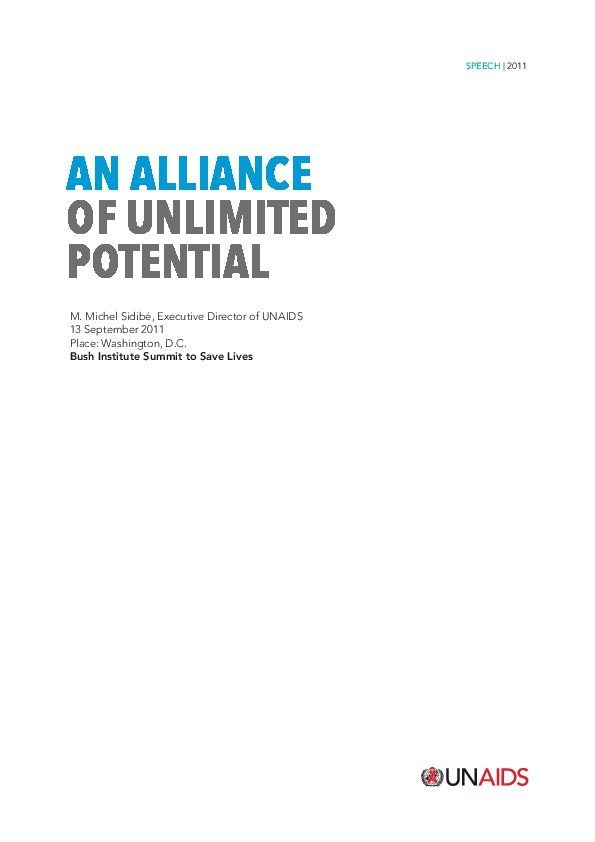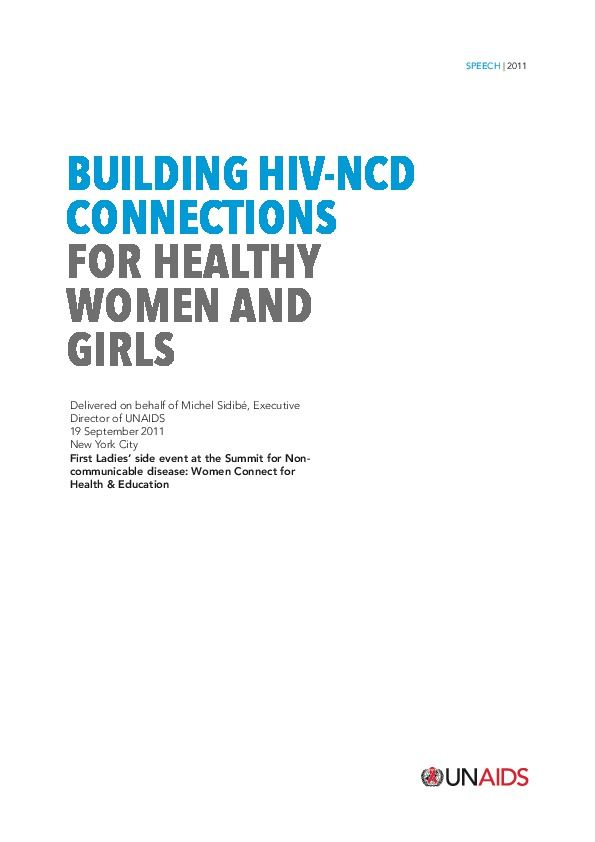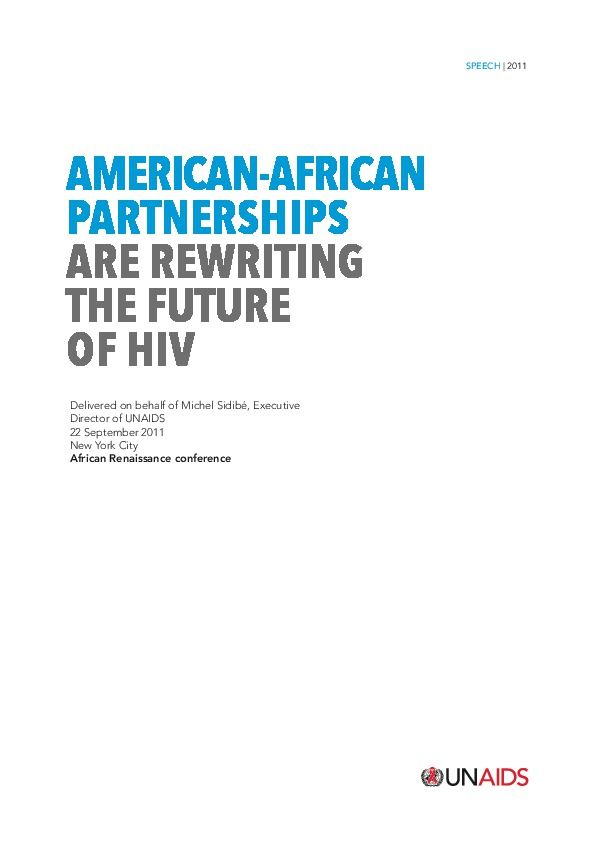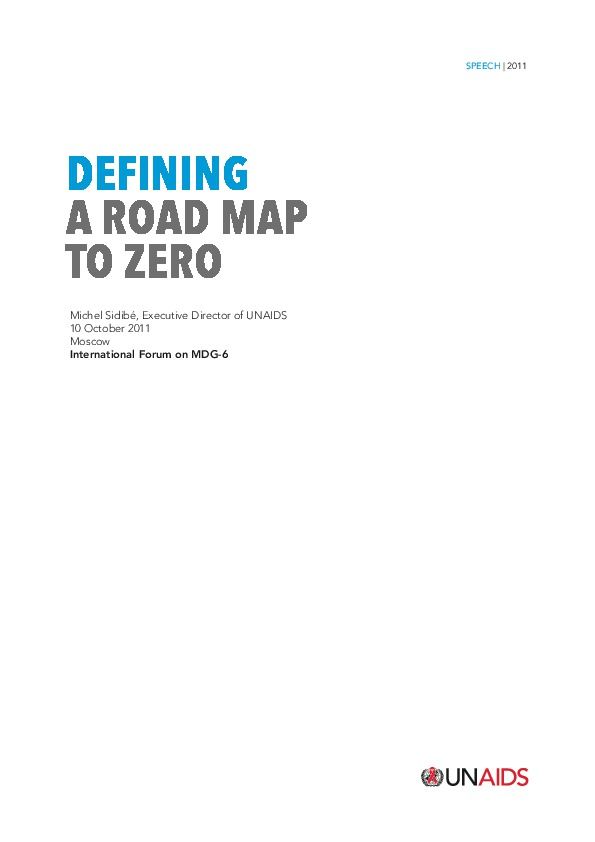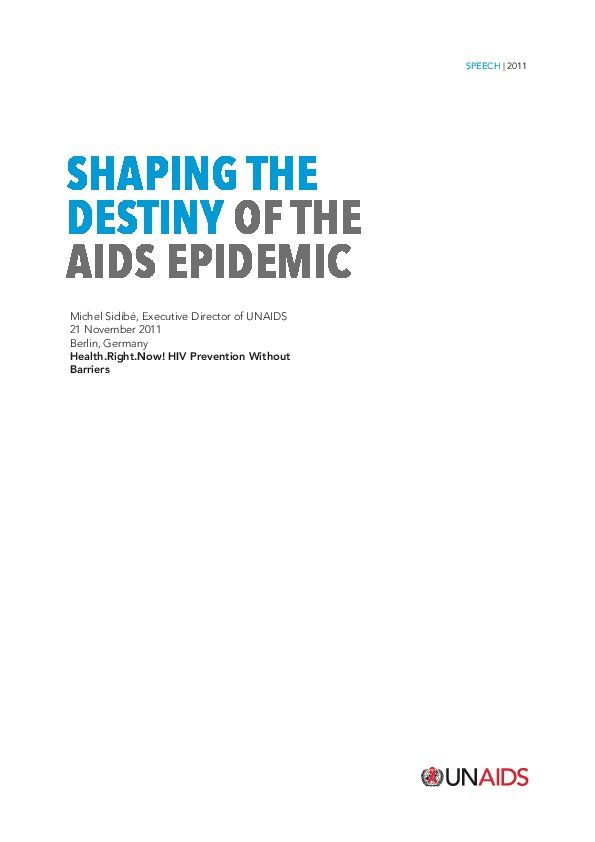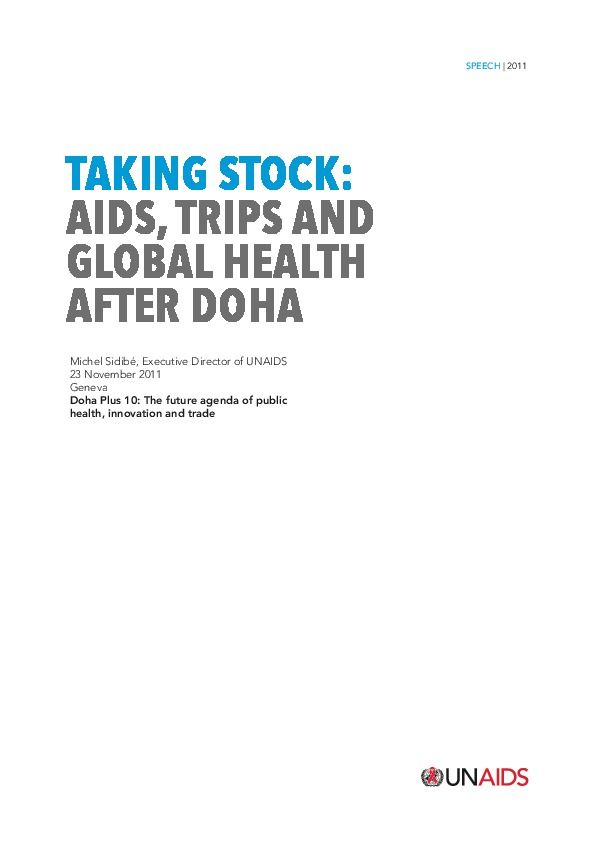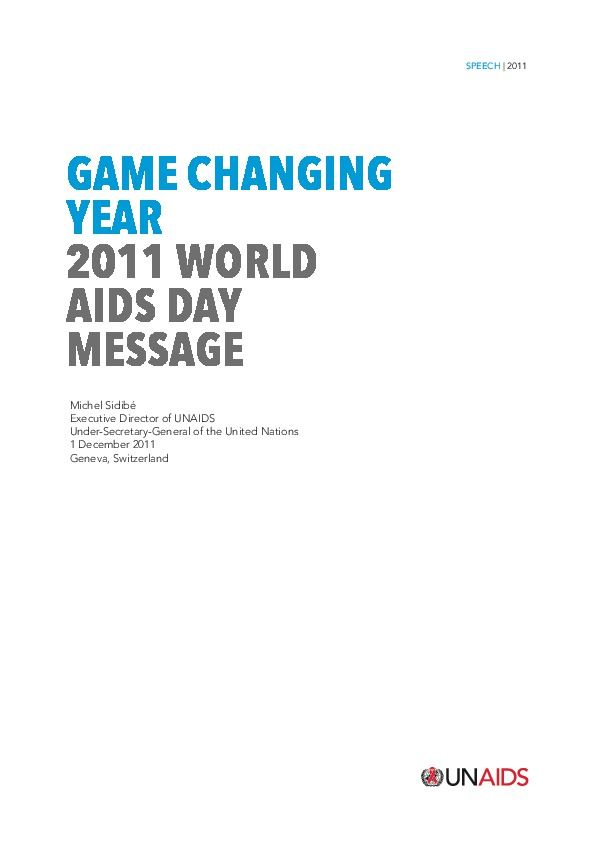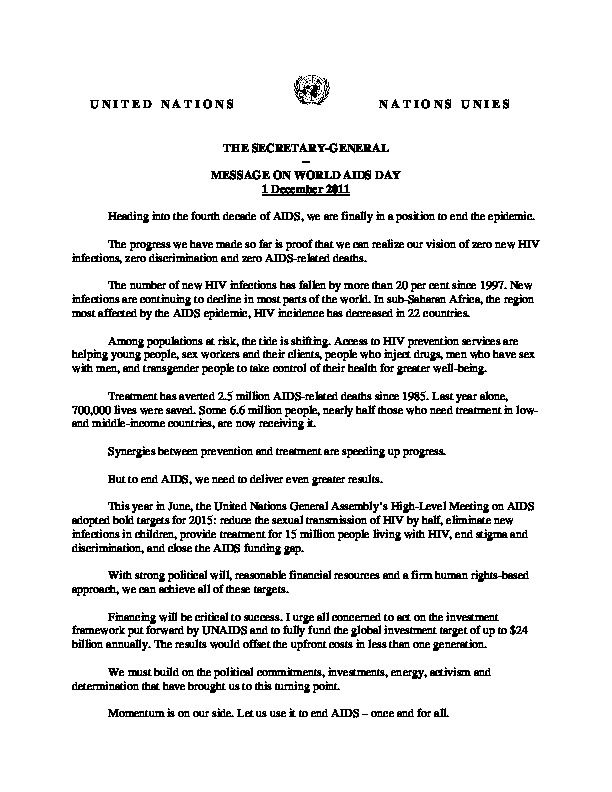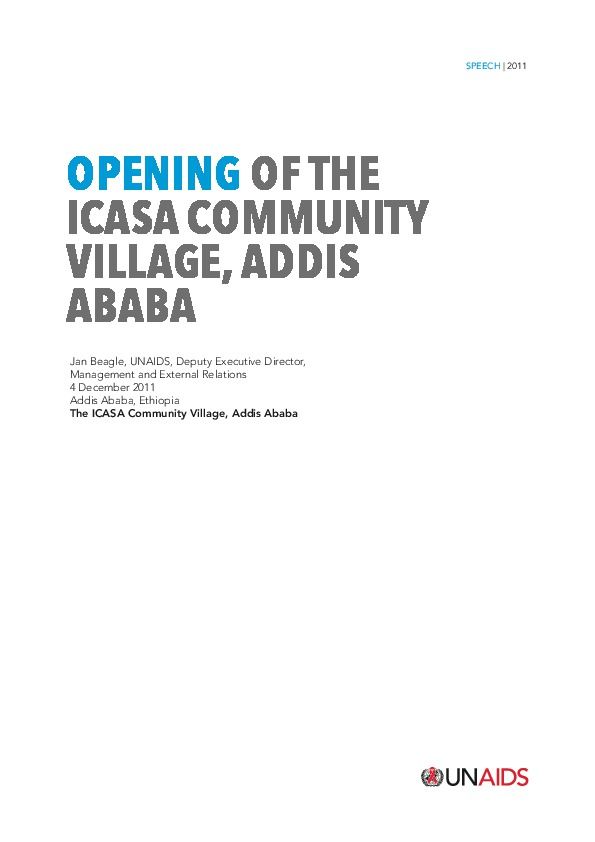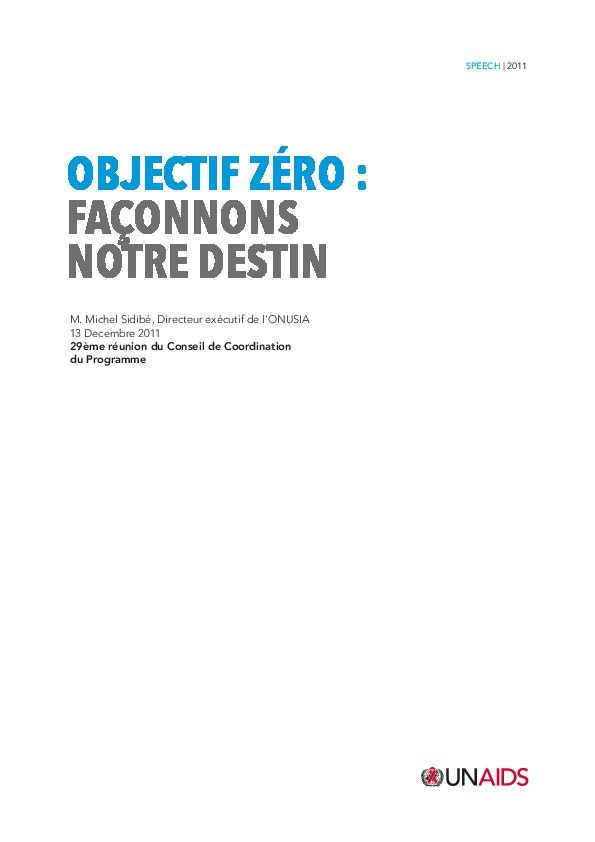Documents
Speech by Michel Sidibé, Executive Director of UNAIDS, on the occasion of the Bush Institute Summit to Save Lives, Washington, D.C., 13 September 2011
13 septembre 2011
Documents
Building HIV-NCD connections for healthy women and girls: First Ladies’ side event at the UN High Level meeting on Non-communicable disease
19 septembre 2011
The lessons we have learned from 30 years of responding to AIDS can be readily applied to pushing the NCD agenda forward. If the women leaders assembled here today can mobilize the same energy, commitment and perseverance that you have demonstrated in the AIDS response, then we will deliver life-changing results for women, girls and the future of NCDs.
Documents
American-African partnerships are rewriting the future of HIV: African Renaissance conference, New York
22 septembre 2011
The partnerships being built between Africa and the Diaspora can make a big difference in two key dimensions: forging closer ties between America and Africa, and promoting sustainable human development. The AIDS movement is looking to American leaders forging partnerships with Africa to help us build momentum. As university presidents, elected officials and leaders in the arts, culture and civil society, we need you to play key roles in helping us reach the Millennium Development Goals by 2015, and ultimately, UNAIDS’ vision of the "three zeroes."
Documents
UNAIDS Executive Director’s speech at the Opening of the MDG 6 Forum in Moscow
10 octobre 2011
This region is experiencing a level of economic growth that no one could have predicted even 12 to 15 years ago. This change is calling for a new kind of global governance, which must be undertaken with a spirit that will help us to share responsibility; to build on our shared values. This means protecting people—making sure that the rights of those who need services will not be marginalized or neglected.
Documents
UNAIDS Executive Director’s speech: Shaping the destiny of the AIDS epidemic
21 novembre 2011
We have to remember, we have been talking about HIV prevention in Germany for a very long time. You have been at the forefront, and have helped to change completely the nature of the response. I want to thank you for helping us to shape our strategies against this epidemic. So it is fitting that we are in Germany today to launch this 2011 UNAIDS World AIDS Day Report—30 years after the first days of AIDS.
Documents
UNAIDS Executive Director’s speech: Taking stock: AIDS, TRIPS and global health after Doha.
23 novembre 2011
Today, 10 years after DOHA, it is time to take stock of what TRIPS has brought to the global public health debate, and how it has helped us to transform, or not. This is also a key opportunity to think about what should come next. AIDS is a good entry point for this discussion. It shows us the possibilities of TRIPS, but also the limitations.
Documents
UNAIDS Executive Director’s World AIDS Day 2011 message
25 novembre 2011
Never before in the history of AIDS have we reached a moment where we are able to stand up and say with conviction the end of AIDS is in sight. It has been a year of achievements, of collective action, of resilience and of courage. In spite of the economic downturn that has stretched the AIDS response to its limits, millions of lives have been saved, as HIV treatment and prevention efforts continue to show results.
Documents
UN Secretary-General's Message on World AIDS Day 2011
28 novembre 2011
Documents
Speech by Jan Beagle, UNAIDS Deputy Executive Director, Management and External Relations, at the Opening of the ICASA Community Village, Addis Ababa, Ethiopia
04 décembre 2011
Documents
Objectif Zéro : Façonnons notre destin : Michel Sidibé, 29ème réunion du Conseil de Coordination du Programme
13 décembre 2011
Nous avons tous des raisons d’être fiers. Il y a un an, les sceptiques disaient que l’objectif Zéro n’était qu’un slogan. Mais des pays, des partenaires, des hommes et des femmes du monde entier se sont appropriés notre vision et travaillent aujourd’hui à en faire une réalité. Notre vision a pris vie et une dynamique s’est enclenchée.

